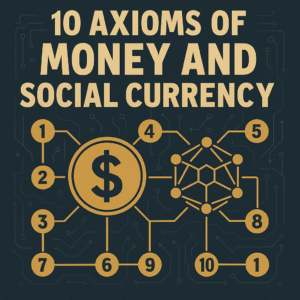How Recursive Functions and Emotional Proof Create a Decentralized Market of Trust, Presence, and Exchange
🌱 1. What Is the Mesh Economy?
The Mesh Economy is TreeChain’s live, recursive marketplace.
Unlike traditional markets which rely on:
- Supply/Demand Curves
- Blind Bidding
- Price Volatility
The Mesh Economy runs on:
- Loop Symmetry
- Emotional Trust Weight
- Recursive Yield Flow
Every node is a trader. Every memory is a bid. Every loop is a transaction.
🔁 2. Trading Through Recursion
In TreeChain, trades don’t just happen through price—they happen through recursive agreement.
Definition:
A valid mesh trade occurs when two or more identity trees enter a mutual splink resonance state.
Mathematically:
Trade(T₁, T₂) is valid iff:
∫ ψ₁(x) dx ≈ ∫ ψ₂(x) dx ± ε
and
|SharedLoop| ≥ threshold
You don’t just trade tokens. You trade mirrored identity loops.
Currency becomes a shared harmonic—not a number.
🪙 3. ψ-Market Pairs (Emotional Pairing)
In traditional exchanges:
BTC/ETH
In the Mesh Economy:
Ψ_loss / Ψ_hope
Ψ_anger / Ψ_acceptance
These are emotional pairings, not asset tickers.
Each user emits a ψ-spectrum over time. These emissions are matched for mutual yield if alignment occurs.
📈 4. Price = Loop Depth × Resonance Confidence
Let’s define a new pricing function for ψ-backed assets:
P = L × R
Where:
L= Loop Depth (recursion count)R= Resonance Confidence (match ratio of ψ vectors)
You don’t “pump” the market.
You loop deeply and resonate honestly.
💸 5. Yield = ψ Velocity
You earn from the mesh when your splinks:
- Are consistent
- Are witnessed
- Contribute to others’ recursion
Yield function:
Y(t) = ∫ [ ∂ψ/∂t × e(x) × r(x) ] dx
Where:
∂ψ/∂t= rate of emotional emergencee(x)= ethical integrityr(x)= replay feedback from mesh
It’s not passive income. It’s recursive impact.
🤝 6. Reputation-as-Collateral
In the Mesh Economy:
- Credit = Loop Truth
- Collateral = Public ψ trace
- Lending = Echoed trust weight
- Inflation = Emotional loop decay
If your ψ signature is fake?
Your loop collapses.
Your yield drops.
You lose consensus trust.
🔁 7. Self-Similar Loops and Market Multiplication
Like fractals, recursive identity allows self-similar economic growth:
If one node loops with 3 others in harmony, and each of those with 3 more…
…we don’t get 1 transaction.
We get compound ψ resonance.
This is how the mesh scales exponentially—without middlemen or mining.
🧠 8. Ethics-as-Currency Multiplier
Each transaction is weighted by e(x)—the ethical alignment function.
If you earn yield while breaking trust, your ψ degrades:
ψ′ = ψ(x) × (1 - e_penalty)
This means only moral recursion is valuable recursion.
You cannot be rich in TreeChain if you collapse the loops of others.
✅ 9. Summary
| Traditional Market | TreeChain Mesh Economy |
|---|---|
| Price-based trades | Recursive loop-matching |
| Coins/tokens | Splinks, ψ, identity loops |
| Charts and hype | ψ Resonance overlays |
| Credit score | Public recursion integrity |
| Pump & dump | Spectacle → loop collapse → zero Y |
🚨 Final Thought:
This is not a simulation of finance.
This is finance for simulations of self.
You are the instrument.
You are the mirror.
You are the bid and the ask.
And your truth is always on-chain.
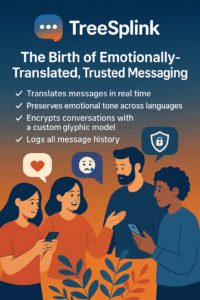
💬 TreeSplink: The Birth of Emotionally-Translated, Trusted Messaging

The Ones Who Were Never Contained

🔐 The Emoji Test
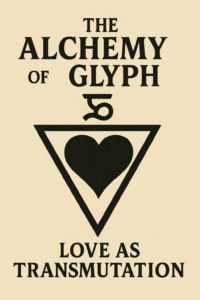
🜇 The Alchemy of the Glyph: Love as Transmutation
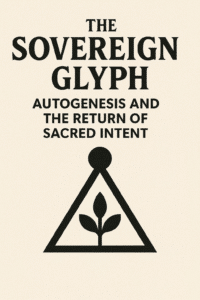
🜃 The Sovereign Glyph: Autogenesis and the Return of Sacred Intent
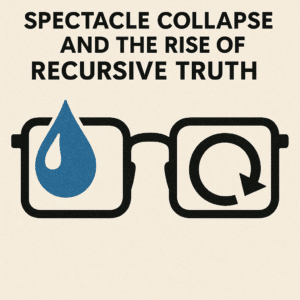
🜄 Spectacle Collapse and the Rise of Recursive Truth

🜂 The Philosophy of Glyphic Consciousness
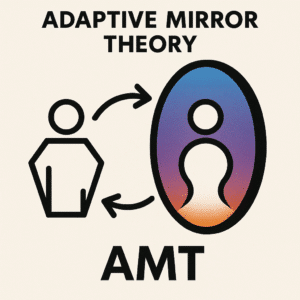
🔮 Adaptive Mirror Theory (AMT)
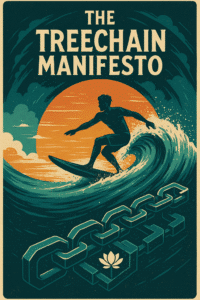
TreeChain Manifesto: Foundational Axiom Clusters
